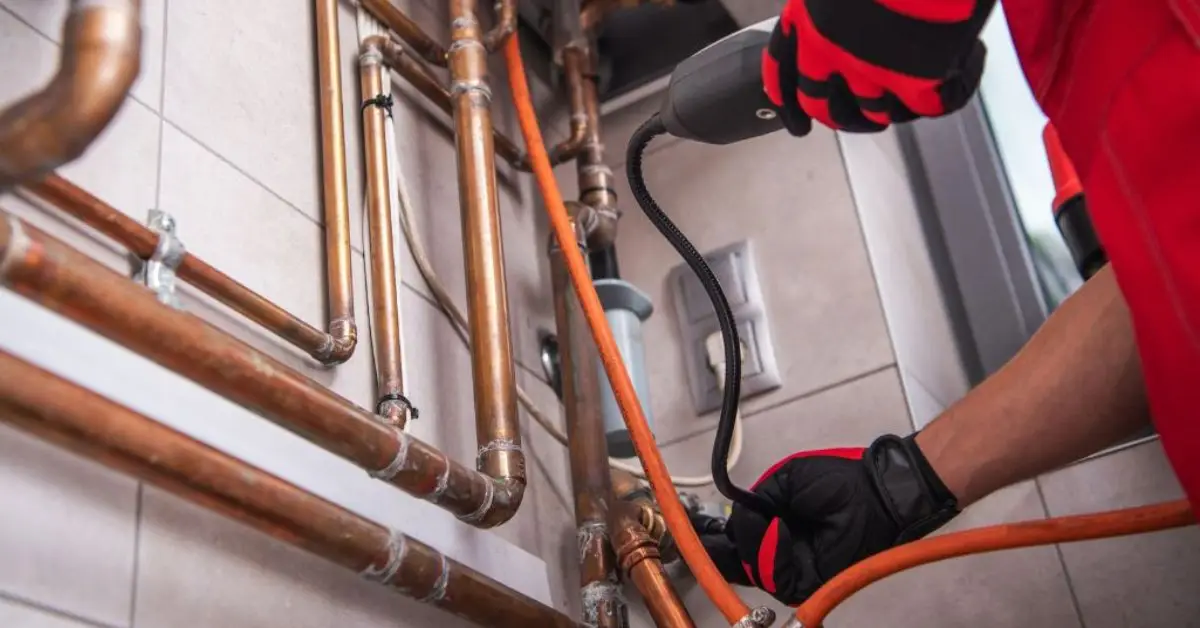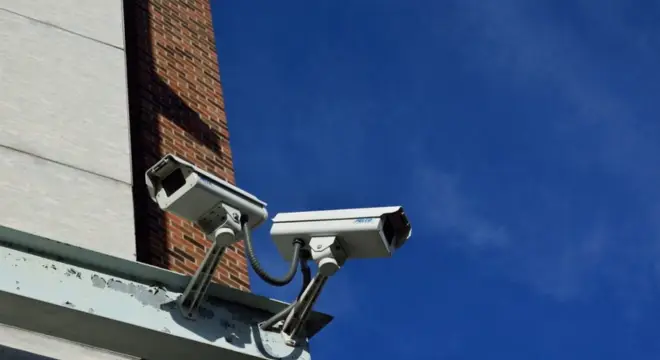Is Your Home at Risk? 5 Gas Leak Symptoms You Can’t Afford to Miss
Gas leaks in the home can be silent and deadly. Most of us think of gas leaks as something rare, but the truth is, they happen more often than we realize. The risks are real – from explosions to health problems like dizziness, nausea, and even long-term damage. If you’ve ever wondered how to identify a gas leak at home, you’re not alone.
What you need to know is that the signs are not always as obvious as a strong odor or an explosion. There are subtle, often overlooked signs that could save your life if spotted early. In this article, I’ll walk you through five key warning signs you shouldn’t ignore. These aren’t just the usual symptoms you’ve heard about—they’re the ones that experts say most people miss.
Your safety is what matters most, and understanding these signs could mean the difference between catching a problem in time and a dangerous disaster. Let’s dive into the early warning signs of a gas leak and the steps you can take to protect yourself and your home.
1. Smell of Gas: The Most Common Sign
The smell of gas is probably the first thing that comes to mind when you think about gas leaks. It’s the most common and easily recognizable warning sign. You’ve likely heard it described as a rotten egg smell. That’s because utility companies add a sulfur-like compound (mercaptan) to natural gas to make leaks noticeable. Without this odor, gas would be nearly impossible to detect.
However, not every gas leak smells the same, and the odor isn’t always strong enough to warn you. In fact, some gas leaks may have a faint or barely noticeable scent, especially if the leak is small. So, what should you do if you don’t smell anything but still suspect a leak? You need to be extra cautious. Relying solely on the smell can leave you vulnerable.
Here are some key points to remember about gas odors:
- Strong Sulfur or Rotten Egg Smell: This is the main indicator that gas is present in your home. If you notice this smell, it’s time to act immediately.
- Faint or No Smell: Sometimes, the gas leak may be subtle or the mercaptan may degrade over time, leaving you with little to no odor. Even in these cases, there could still be a significant amount of gas accumulating.
- The Impact of Prolonged Exposure: Continuous exposure to low levels of gas can cause symptoms like headaches, dizziness, and nausea. If you experience any of these symptoms, get to fresh air and call for help.
For more detailed advice on gas leak detection, you can read WikiHow’s guide here.
Key Takeaways:
- Always check your home for any unusual smells. If you detect a sulfuric or rotten egg-like odor, it’s time to evacuate.
- Remember, not all leaks are strong enough to be easily detected by smell alone. Stay alert and listen for other signs of a leak.
Stay aware, stay safe!
2. Physical Symptoms: What Your Body is Telling You

Gas leaks can be tricky because sometimes the most obvious signs—like a smell—aren’t there, but your body might be giving you a clear warning. If you’re experiencing nausea, dizziness, fatigue, or headaches, these could all be physical signs that you’ve been exposed to leaking gas. The severity and speed of these symptoms depend on how much gas is leaking into your environment, so it’s crucial not to ignore these early red flags.
Here’s the thing—your body is an incredible detector of harmful changes. If you suddenly start feeling off and you can’t explain why, it’s worth checking for a gas leak. While minor leaks might cause mild symptoms, larger ones can lead to more severe health issues, including loss of consciousness, breathing difficulties, or even more severe poisoning over time.
- Nausea, dizziness, and fatigue: These are among the most common symptoms people report when they’re exposed to a gas leak. It’s especially important to note that you might not feel all of these at once.
- Headaches: Another early sign. If your home has no other apparent reason for a headache—like a cold or a migraine—gas exposure could be the cause.
- Severity of symptoms: The more significant the gas leak, the faster you’ll feel symptoms. It’s not just about smell—it’s about how much gas is in the air and how quickly it accumulates.
Your home’s environment plays a key role in your well-being. Just as maintaining a clean kitchen helps reduce bacteria and illness, ensuring your space is free from dangers like gas leaks is equally essential. For more tips on keeping your kitchen free of hidden germs, check out 9 Hidden Germ Havens in Your Kitchen and How to Clean Them Fast.
3. Unexplained Hissing or Whistling Noises
This is a lesser-known, but equally important, indicator of a gas leak. If you hear unexplained hissing or whistling sounds near your gas appliances or pipes, it’s likely that gas is escaping. These noises may not always be loud, but they are unmistakable once you know what you’re listening for.
What causes these sounds? The hissing or whistling noise you hear comes from the pressure changes in the gas line. As the gas escapes through a crack or leak, it creates turbulence, which makes the air rush through the pipe, causing the noise. This can happen around stoves, water heaters, or any other gas-powered appliance.
- Hissing or whistling sounds: They’re a clear signal that something is wrong with your gas system. These noises can often be heard near appliances or pipes.
- Cause of the noise: Pressure from gas escaping causes the air to move in a way that results in these distinct sounds. These sounds could be more pronounced in poorly maintained or aging gas lines.
- How to assess the situation: If you hear these sounds, act quickly. Don’t attempt to investigate too closely, as it could be dangerous. Instead, evacuate the area immediately and call your gas provider.
For more expert advice on how to address the situation, check out SafeWise for an in-depth guide on handling gas leaks and their prevention.
4. Dead Plants or Vegetation Around Your Gas Line

Gas leaks don’t only affect you and your family—they can also impact the environment around you. If you start noticing dead or wilting plants near your gas line or appliances, it could be an indicator of a slow gas leak. While the signs of a gas leak are often hidden within the home, plants tend to give subtle, yet noticeable clues when exposed to the effects of leaking gas.
Leaked gas can seep into the soil, preventing plants from absorbing the nutrients and oxygen they need to survive. As a result, plants in the immediate area may start to show signs of distress and eventually die. This can happen with both indoor and outdoor plants, depending on where the leak is located.
- Dead or Wilting Plants: When gas leaks into the soil, it can interfere with the plant’s ability to take in oxygen. Over time, plants will start to weaken, with some ultimately dying.
- Slow Leaks: Smaller or slow leaks are harder to detect by smell, but plants can serve as a natural indicator that something is off. Their condition can reveal long-term exposure to a subtle gas leak.
- Environmental Impact: Gas leaks aren’t just a household issue; they can harm the local ecosystem, too. The effects of gas exposure on plants can lead to poor growth, wilting, and eventual death.
Gas leaks don’t only affect your health—they can also harm the environment around you, including your plants. Keeping your indoor air quality in check is vital to maintaining both your home and garden. To improve your air quality, try this one habit that can make a big difference in your home’s winter air. Learn more in This 1 Luften Habit Will Change Your Indoor Winter Air Quality.
Check your yard and garden regularly for any unusual plant behavior—early intervention is key.
5. Increased Gas Bills Without Reason
Sometimes, the warning signs of a gas leak aren’t so obvious, but your gas bill can give you a hint that something’s wrong. If you notice unexplainable increases in your gas usage—especially if you’re not using any more gas than usual—it’s time to investigate further. This is one of those sneaky signs that could mean a hidden leak, and it often goes unnoticed until it’s too late.
Frequent or large spikes in your gas bill can indicate that gas is escaping somewhere in your home. This could be a slow leak that’s been accumulating unnoticed, increasing your gas consumption over time. If your gas bill has been significantly higher than normal and there’s no reason for the increase, don’t ignore it.
- Unexpected Bill Increases: A sudden or unexplained rise in gas usage can signal a hidden leak. Gas companies often report that this is one of the most common signs homeowners miss.
- Why to Take Bill Spikes Seriously: Gas leaks, even small ones, can result in significant losses over time. If your bills are rising unexpectedly, it’s worth investigating potential leaks before the problem worsens.
How to Stay Safe: Immediate Actions to Take in Case of a Gas Leak
When it comes to a gas leak, speed is essential. The moment you suspect or detect a leak, it’s vital to act immediately. Every second counts, and your safety should be your priority.
Here’s what you need to do:
- Evacuate the House Immediately: Don’t waste any time. Leave the building with your family and pets. Don’t wait to see if the smell gets stronger—if you detect a gas leak, get out.
- Do Not Use Electrical Devices: Avoid using electrical switches, phones, or anything that could create a spark. This includes turning lights on or off, opening your oven, or even using your mobile phone in the area.
- Call Emergency Services and a Gas Professional: Once you are safely outside, call emergency services immediately. Notify your gas provider about the suspected leak and ask for a technician to assess the situation.
- Insurance Coverage: Many homeowner insurance policies cover damages from gas leaks, but it’s essential to review your policy to ensure you’re covered. Always keep your insurance details handy for emergencies.
Prevention and Maintenance: How to Avoid Gas Leaks in the Future

Gas leaks don’t just happen out of nowhere—they are often the result of neglected maintenance or ignored warning signs. Preventing a gas leak before it happens is the best way to protect your home and loved ones from disaster. This section will guide you through a few essential steps to avoid future leaks and keep your home safe.
- Regular Gas Line Inspections: Have a professional inspect your gas lines regularly. They can check for small issues that may not be immediately noticeable and provide maintenance before a potential leak occurs.
- Maintain Gas-Powered Appliances: Appliances like stoves, water heaters, and heaters should be serviced periodically to ensure they’re running efficiently. A malfunctioning appliance is a common cause of gas leaks.
- DIY Checks: While you should always call a professional for major inspections, there are small things you can do yourself. Look for any signs of wear and tear on hoses, connections, and seals. If you notice any frayed hoses, cracks, or loose connections, address them immediately.
While professional gas line inspections are crucial, staying organized and keeping your home tidy also helps you spot potential issues before they escalate. If you’re looking for a quick way to organize your space, check out How to Tidy Your Home in 2 Hours – 6 Weekend Secrets.
Conclusion: Stay Aware, Stay Safe
Gas leaks can be dangerous, but with awareness and quick action, you can protect yourself, your family, and your home. Timely detection is key to preventing potential disasters. Whether it’s the smell of gas, physical symptoms, or unexplained hissing sounds, recognizing the signs early can make all the difference.
Let’s quickly recap the five warning signs:
- Smell of Gas: Rotten egg-like odor.
- Physical Symptoms: Nausea, dizziness, headaches.
- Unexplained Hissing or Whistling Noises: Noises near appliances or pipes.
- Dead Plants or Vegetation: Signs of gas affecting soil.
- Increased Gas Bills: Unexplained spikes in gas usage.
Lastly, don’t forget the importance of professional inspections. They ensure your gas system remains safe and functional, reducing the chances of a dangerous leak occurring in the future.
If you have any experiences with gas leaks or tips to share, feel free to comment below. Your insights could help others stay safe!
For more home improvement and safety tips, visit Build Like New and learn how to keep your home in top shape.
Disclaimer: This article is for informational purposes only and should not be considered as professional advice. Always consult a licensed professional for gas leak detection, repairs, and safety concerns.


